Organ Transplant Status, Types and Processes in Turkey
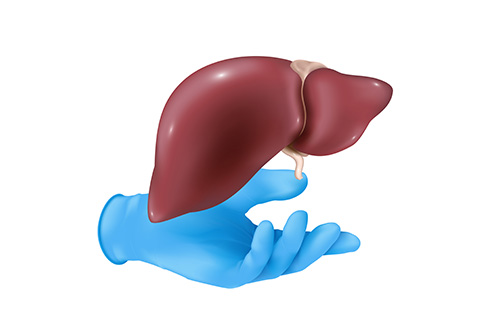
- What is Organ Transplantation?
- Which Organ Transplants Are Performed in Turkey?
- How is Organ Transplant Performed?
- What are the Types of Organ Transplantation?
- How are the organs to be transplanted determined?
- Recovery Process After Organ Transplantation
- Organ Transplantation in Turkey
- How is Organ Donation Made?
- Which Organs Cannot Be Transplanted?
- Which Patients Can Have Organ Transplantation?
- Which Organs Are Not Enough for Transplantation?
- Organ Donation Has Great Importance
What is Organ Transplantation?
The transplantation of various organs from the donor body, which is called a donor in medical language, to the place of the organ that has lost its function is called organ transplantation. What is an organ transplant? It is a subject that is frequently asked, about which there is incorrect and insufficient information. Inadequate sensitivity and underdevelopment of sensitivity in our country result in the inability to find enough organs in a vital issue such as organ transplantation. Organ transplantation can be performed from a living donor or from a deceased donor.Organ donation is a sensitive and at the same time vital issue. Like blood donation, organ donation is an important issue that saves many lives. The loss of function of some organs as a result of various diseases causes fatal consequences for the patient. However, having a healthy organ donor with the necessary tissue compatibility can enable this patient to continue his or her life in a healthy way. In our country, organ transplantations are performed successfully in a wide area such as kidney, pancreas, heart, intestine, lung, liver, eye and face. In our country, which has a high level of development in organ transplantation in terms of medicine, there is a lack of sufficient organs due to the problems experienced in organ donation.
Which Organ Transplants Are Performed in Turkey?
What is organ transplantation, What is organ donation, which organ transplants can be performed? There is insufficient and even wrong information in the society about the answers to such questions. These inaccuracies also cause the lack of sensitivity to organ donation for moral and religious reasons. Although organ transplants are performed around the world, new methods of organ transplantation are applied more successfully in developed and developing countries. Due to the specific clinical details and expertise required for some organ transplants, it cannot be performed worldwide.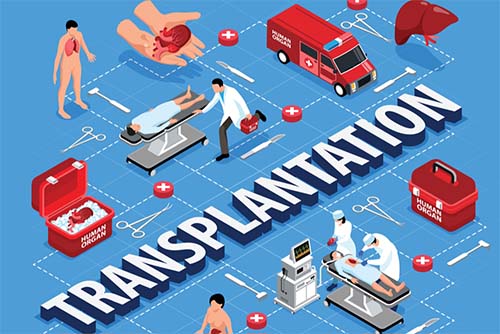
However, a high level of progress has been made in organ transplantation in our country, and some organs have been successfully transplanted only in our country. Despite the success of our experts in this ever-developing field, sufficient sensitivity on organ donation has not been established in the society. Any organ that is healthy and has the necessary harmony can be transplanted. In our country, in order of frequency, kidney, heart, liver, lung, pancreas, intestine, eye transplants are performed continuously.
How is Organ Transplant Performed?
What is an organ transplant? How is organ transplantation done? This question is also among the frequently asked questions. For organ transplants, a healthy donor must be found and this donor must have the necessary tissue compatibility with the patient. Organs that living donors can be donors are limited. Accordingly, living donors can be applied for marrow, kidney, muscle and liver transplants. Apart from these, transplants such as heart, intestine and eye can be performed from cadavers. For facial, muscle and similar transplants, the person himself can be a donor.The most sensitive issue in organ transplants is tissue compatibility. If the donor and the patient's tissues do not match, the transplanted organ will show functional disorders and subsequently the transplanted organ will become dysfunctional. This may result in the patient's illness not being treated and his life ending. The likelihood of tissue match is usually higher in people of the same race. For this reason, the increase in organ donation in our country, apart from relatives, means that more lives can be extended.
Organ transplantation is an extremely complicated treatment procedure that requires donors and recipients to save human life. In this treatment procedure, transplantation is a surgical procedure in which an organ is taken from a donor and the recipient is transplanted. The donated organ is taken from the body of the person who donated the organ/organs called organ donor or donor and placed in the recipient's body. Thanks to this process, the organ transplantation application is completed. Various health problems, accident, etc. Depending on the factors, some patients may need a new organ. If the current organ cannot perform its function or is completely lost, a life-threatening risk occurs. In this, the patient is transplanted with a new organ to be taken from donors. How to do an organ transplantIt is of great importance for both the donor (donor) and the recipient to be informed about the conditions and conditions.
What are the Types of Organ Transplantation?
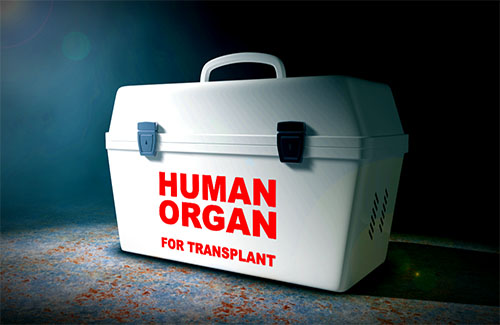
Raising public awareness about organ transplantation has a great impact on increasing the number of donors. In this context , it is necessary to provide widespread and general awareness throughout the society on how to do organ transplantation and also about the types of organ transplantation. Organ transplantation is performed in different types today, including different operating procedures. Accordingly, the types of organ transplants performed today;
- Organ transplantation from other parts of the patient's body (autograft),
- Transferring from the donor to the patient (allograft),
- Making the organ/tissue between people with genetic identity “For example: identical twins (isograft),
- Performed between two different types of organisms “Ex: pig heart valve transplant to human” (xenograft)
- Organ “exchange” (Domino transplant) between the young patient and the old patient,
- Organ transplantation for babies younger than 12 months, even if incompatible (ABO incompatible transplantation),
How are the organs to be transplanted determined?
With the development of today's medical technology, the scale of organs that can be used in organ transplantation has also expanded. In this context, it is possible to perform organ transplantation in all vital situations. The answer to the question of how organ transplantation is done is determined accordingly. The priority of organs that can be used in organ transplantation is to be healthy and unproblematic. In particular, the general health status of the donor, as well as the organ health status, should be medically good. For this reason, if there is an “opportunity/time” for donors, various examinations are provided. In this way, it is ensured that there is no room for situations that may risk the general health status both for the donor with the removal of the organ and for the patient to whom the organ will be transplanted.The organs and tissues that can be transplanted differ in each donor. In other words, since certain organs have an important place in vital function, it is not possible to obtain them from a living donor. Such approaches are also considered illegal acts. There may be situations that may endanger the life of the donor or cause disruptions in the general body working function, or that the removal of the organ will pose a risk in terms of existing diseases. In such cases, it is not possible for the person to be accepted as a donor, that is, an organ donor.
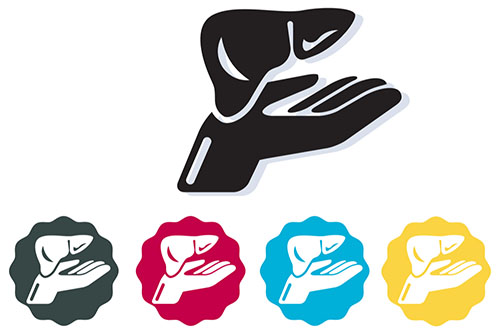
In organ purchases to be made from non-living, cadaveric donors, the functional health of the organ is taken into consideration. Factors such as the cause of death of the donor, past health status, and the degree of damage to the organ due to the cause of death are taken into consideration. Such factors constitute important stages of the question of how organ transplantation is performed .
Another important issue in organ transplantation is the compatibility of the organ to be transplanted with the patient. In particular, the transplanted organ by the patient's immune system should not be considered as foreign and should not be rejected. For this, achieving the highest degree of compatibility is the most basic condition sought for the transplant of the organ to the patient. Especially in today's world, where there is a serious shortage of organ donors, it is of great importance that the organs taken from donors can be used in really suitable people and that they do not pose a life risk by causing complications in the transplanted patient.
Recovery Process After Organ Transplantation
It is necessary to be sensitive about the recovery process after organ transplantation, as well as how the organ transplantation is applied today . In order for the body to reject the organ, to avoid organ-related complications and for the organ to be accepted by the body without any problems, the procedures recommended by the specialist physician should be followed.Organ Transplantation in Turkey
Being a living donor in organ transplants has a legal regulation up to the 4th degree close relative. Preventing organ trade and being a donor due to ethical concerns is subject to the approval of the Regional Ethics Committees. The inadequacy of organ donation causes a transplant order to be made for each organ. During this transplant, there is a ranking according to vital urgency. In this order, organs from organ donors are transplanted to the most urgent patient. For these reasons , what is organ transplantation? It is of great importance that the subject is frequently covered and that social awareness is created.
How is Organ Donation Made?
To donate your organs while you are alive or after you die, you must apply to an organ transplant center. In order to donate your organs, it is sufficient to sign the necessary documents in the presence of two witnesses. After your death, first-degree relatives can also donate your organs. In order for the organs to be transplanted, it is necessary that they have the necessary health criteria and that the deceased should not have various diseases. On the other hand, anyone can be an organ donor, and their healthy organs can help others to survive. For these reasons , it is a moral obligation to frequently mention what is organ transplantation and how to donate organs.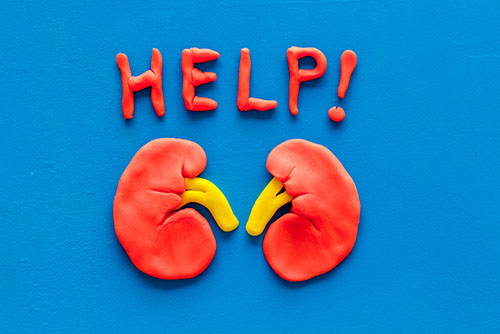
Which Organs Cannot Be Transplanted?
Organ transplantation, being an organ donor, how to donate organs, misconceptions about organ donation, misinformation about which organs are not transplanted , religion prohibits organ donation, are questions that cause confusion in our society due to the fact that the issue of organ transplantation is less than necessary. Experts in this field should carry out continuous information campaigns in order to enlighten the society, and people who have sufficient knowledge and awareness on this subject should make statements by utilizing every opportunity related to the subject.There are many questions and answers to these questions about organ donation and transplantation. In fact, even knowing that we have the means to lead another person's life in a healthy way should constitute sufficient moral truth. In our religion, if certain conditions are met, there is no objection to organ donation and transplantation, and if these conditions are met, organ donation and transplantation must be carried out. Due to the lack of information, there are errors in information transfer in every field about organ transplantation and organ donation. This situation causes the organ donors to be insufficient in number and sensitivity. Just because of this, many people die because their diseases cannot be cured, while they can live a healthy life.
Which Patients Can Have Organ Transplantation?
The scarcity of donors in organ transplants causes donated and vital organs to be very valuable. For this reason, in organ transplants, criteria such as the age of the patients and why their organs have lost their function are decisive during urgency. For example, factors such as the fact that a patient has lost his liver due to continuous and heavy alcohol consumption or due to heavy tobacco habits cause them to rank lower in the transplant lists. In addition, the fact that the patient is over a certain age causes him to fall into the lower ranks in terms of transplantation.
Which Organs Are Not Enough for Transplantation?
It is possible to transplant any healthy organ. However, which organs cannot be transplanted for those who want to be organ donors ? It is a common situation that they try to make up for their lack of knowledge on the subject and try to direct their donations accordingly.
Which organs cannot be transplanted?The clear answer to the question is “transplantation of any healthy organ can be done”. Therefore, organ donors can donate their entire organs or certain organs. Transplantation is performed successfully if the organs are compatible with the patients waiting in line for the relevant organs and if the organs are healthy. The issue of whether your organs are suitable for donation is resolved by specialists, if the necessary conditions for transplantation are met. Organs that you think are unhealthy and will not meet the standards due to your lifestyle may actually have adequate standards.
Organ Donation Has Great Importance
Which organs cannot be transplanted? This question is a frequently asked question. The level that our country has reached in terms of expertise and technique in the field of medicine is at a level that is respected and advanced in the world. The main problem in our country, which has been continuously increasing its success in organ transplantation for many years, is about organ donation. In our country, where every healthy organ can be transplanted, there are many patients waiting in line for organ transplants.It is a vital issue that matters such as organ transplantation procedures and organ donation procedures are handled sensitively and that the society is informed at every opportunity. The issue that organ donation is as important as blood donation and that it should be embraced by the society like blood donation should be discussed frequently in every platform.
For detailed information about Organ Transplant Law, Conditions and Fee Situation in Turkey please click here >>
For detailed information about Organ, Kidney and Liver Transplantation in Turkey please click here >>
There are no comments yet. Would you like to add a comment?
In accordance with Article 10 of the Personal Data Protection Law (PDPL,KVKK) titled Data Controller's Obligation to Disclose, we use cookies in accordance with the legislation, limited to the purposes specified in the privacy policy.

